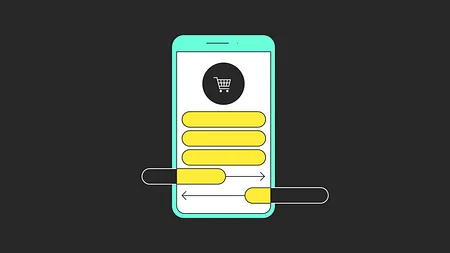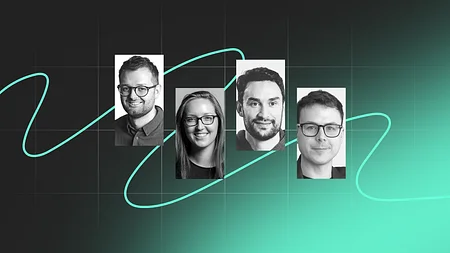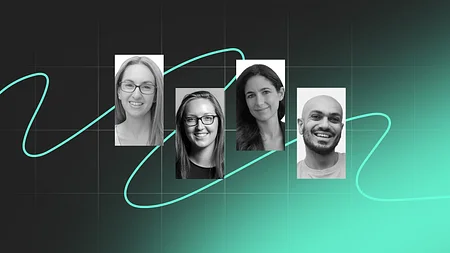Antony Jenkins: We Can Build a Better Banking System with Technology
Antony Jenkins, former CEO of Barclays, has spent 35 years working in large financial services institutions. He says that it struck him that, although there’s a lot of technology in banks, it doesn’t help much when it comes to improving the customer experience or lowering costs, and it hasn’t improved the reputation of banks within society. He founded 10x to create a new banking experience — one that is more diverse, open, and fair. In episode 229 of FinTech Insider, he talks to us about his new company, the future of banking, and the transition from running one of the biggest banks in the world to founding a startup.
Tell us a little bit more about 10x. What’s the thinking behind it, where has it come from?
When I left Barclays, I began to look at what was happening, not only in the FinTech scene, but also with the underlying technologies, and I became convinced that there was an opportunity to create the beginnings of a very different way of doing banking. And so we set up 10x to deliver the capability to do that. It basically is a full set of capabilities that a bank would need to operate. I like to think of it as providing better functionality than a neobank at lower cost than a big bank, and in a much more transparent way, and that’s what we’re building at 10x. We’re well on the way to having that platform built, it’ll be largely built by the end of the year, and then we’ll be live into 2018.
How has the transition from big banking corporation to startup been?
it’s great doing a startup. There are many, many challenges. The big difference is you have a lot more time to think, and frankly, a lot more freedom to act. So you’re not encumbered by the past, whether that’s the culture of the past, the reputation of the past, the cost structures of the past. Now, on the other side, of course, you basically have to do everything yourself. it’s a really different and interesting career for me, but it’s also one where I bring some of the things that I learnt from my old career into this.
With a new vantage point, the world looks quite different, doesn’t it? It’s suddenly all opportunity rather than restrictions.
I think a lot about other industries, where there have been solidly entrenched incumbents, who one day wake up and find that their business has basically imploded. And we all can think of these examples, whether it’s BlackBerry, it’s Nokia, it’s Kodak, Blockbuster. if you’re in a big incumbent, your view of the world tends to be quite linear, and your risk appetite is quite low, because basically, you’ve reached a certain position in the organisation, and by most intentions you just want to, sort of, stay where you are and show a linear progression in the business. When something discontinuous comes along, like a big technology shift, in the case of Blockbuster, for example, it was a broadly available broadband capability, then you’re in a discontinuous world, where that doesn’t work anymore.
And so there’s a big difference between, sort of, what I describe as “playing not to lose” behaviour, which you see in a lot of big organisations with entrenched market positions, and "playing to win." which is what you see in disruptive startup type land, because it’s a lot easier to play to win when you haven’t got anything to lose. And so that’s the sort of thinking that we’ve been bringing into 10x, which is, if we really want to create a totally different type of banking, what does that look like? What does it look like for the customer, what does it look like for the bank, what does it look like for society?
We need a better banking system. I believe we can build a better banking system with technology, if we have a better banking system, our economies will be more successful, our citizens will be more successful, our societies will be stronger and more prosperous.
I’ve seen you write about technology being able to play a large part in bringing about a much more personalised banking. How do you think that can come about?
Banking, for most people, is a chore. But the paradox is that what banking enables in people’s lives is incredibly important. So nobody wants to get a mortgage, but buying a house is a transformational life event. thinking back to how can we make the customer’s life much simpler and much easier, and this is why I called the business 10x. Because we know that from other areas of our lives, we only adopt new technologies, or new things, where there’s a significant benefit. So it can’t be, ‘I can check my balance on my mobile phone.’
So how can we create those transformational experiences for the customer? How can we take an onboarding experience, an account opening experience, which for most banks is 45 minutes to an hour, a stack of paper, you know, bring in your dog’s birth certificate and so on, how do you take that and turn it into a, sort of, three to five-minute experience which is beautifully handled on a mobile device, where all the documents are captured digitally? How do you archive data about the customer so that when they want to get a loan, all that data’s readily available, the customer doesn’t have to put more data in? How do you streamline every operational element of that, so that loan can be provisioned instantaneously? Those are the sorts of things that we’re thinking about very deeply.
You’ve said 10x will reduce the risk for society. What do you mean?
One of the things that we think about is where does the risk sit in the banking system? risk is inherent in all activities of human life, but often it’s misunderstood, and when it’s misunderstood, it’s then mis-priced, and if it’s misunderstood and mis-priced, bad things happen, which is what happened in 2008. So firstly, it’s about really understanding where that risk is, and eliminating the so-called false positives in in decision making around that risk. So if you have almost perfect data about a person, you should be able to make a better credit decision. If you have almost perfect data about how that person’s situation changes, you ought to be able to intervene more actively if they’re experiencing financial difficulty.
One of the things we know about human beings, when they get into financial difficulty, they don’t ask for help soon enough, right? Can we create much more predictive and diagnostic tools around that? On a much bigger level, because in my view, the changes we’re going to see in financial services are just starting, in five, ten, 15, 20 years, you could see some of the really big drivers of risk eliminated from the system, including maturity transformation, which is a thing that very few people talk about. It’s very technical, but in essence, it’s about banks borrowing short and lending long, which is fine until everybody wants their money back.
We’re seeing technology lowering barriers of entry and the rise of all these new challenger banks. What do you think about those guys coming in?
I applaud all of the activity going on to create a better banking system. What we know, again, from other verticals that have been transformed by technology is it’s seldom the first thing that hits the ball out of the park, right? So Facebook wasn’t the first, what you call, social media site. Google wasn’t the first browser. But the fact that people are in the space, are experimenting, are learning, are creating knowledge – and that knowledge stacks up on top of each other as the technology continues to evolve. That’s all good.
I think the challenger banks have got a really serious role to play. They’re different from the neobanks, they have more scale, they often have brands that they can leverage to play against the big banks, and of course, the benefit of incumbents, if you’re a big bank, is you’ve got a brand, you’ve got massive financial resources, you’ve got millions of customers, and actually regulation has really been your friend, even though you may complain about it, because it creates a barrier to entry.
Now we’re seeing those barriers to entry come down, because regulators are much more interested in the potential and possibility that can be created by new entrants. So I think we see across the FinTech world, really, this sort of explosion of human and financial capital going into the space, and that is inevitably going to accelerate the pace of change, so that’s got to be a good thing. Is every neobank going to be successful? Obviously not, but I think it will create momentum for change.
I’ve seen you speak a few times about when there’s the choice of the business model or doing the right thing by the customer, there really isn’t any choice there. How much do you think the pressure is being turned up on traditional banks to make those types of changes, make those tough choices?
We’re going to see immense pressure on the existing business models for banks. We’re going to see immense pressure on the existing business models for banks. everybody leaves a lot of money in their current account, banks make money out of that, right? Not very much, they would say, because interest rates are low, but they still make money out of that. I think increasingly, we’re going to see pressure on those sorts of things. One of the problems for banks is their technology does not allow consistency of delivery of product and service, because banks operate semi-automated processes, where there’s a bit of technology, and then a human being, then a customer, then a bit more technology. In a world where you can automate everything, from the customer through the books and records of the bank and out to the balance sheet of the bank, you can create a much more transparent set of products and services, not only for the customer but for the bank, themselves, and for the regulator and society.
If you look at financial services, in order to create this transformation, there are two things that you really have to understand and master. One is technology, the other, more fundamental issue, is data. the ability to handle that data at the right points in time, firstly to automate it, and then to control it, is really where you can squeeze out the inefficiency, the risk, the poor customer outcomes, the slightly broken business models. we’re really at the start of something here, what I’m increasingly thinking of as “the end of the beginning” of a process of very radical transformation.
How do you stay on top of everything that you’ve got to do?
For me, there’s two incredibly important things to drive my personal productivity. One is, create some space when you disconnect, and this is a really important thing, because it allows me to refresh myself mentally, and I often find that if I’ve been working on a tricky problem and I can’t get the answer, if I give myself a little bit of a break, then the answer sort of pops into your head. The other thing I’d say is, it’s really important when we’re so mentally stimulated all the time to make sure that your physical health is good. So, building time into your schedule to exercise. Those two things have always been really important to me. So if I can have a bit of downtime, and if I can exercise, then I find my personal productivity goes up.
Thank you very much for joining us.


